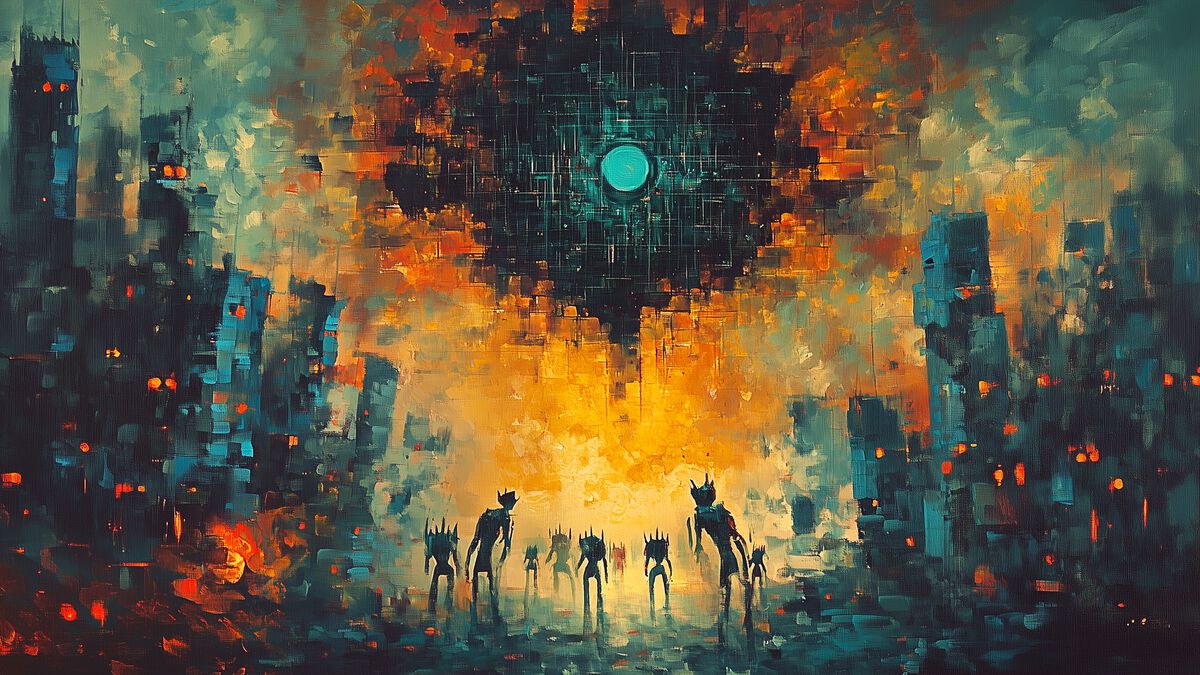Would It Be Moral to Create a World Like Ours?
Lincoln Cannon
30 December 2012 (updated 3 January 2026)
I trust our world was created by God, a radically compassionate posthumanity. After expressing this trust recently on the Singularity 1 on 1 podcast, a commenter asked how I justify the morality of creating worlds like the one we’re now living in. Or, put differently and in traditional terms: how do I respond to the problem of evil?
I’ve responded to this question before. I’ve written about “Gods of suffering and oppression” and “Becoming God can be cruel and irrational.” And I’ve asked, “Can non-benevolent super-intelligence persist?” Here are some additional thoughts that I shared with the commenter.
Observing our world and the suffering throughout it, I share concern with the problem of evil. In fact, in regards to specific (emphasize “specific”) evils, there is no justification whatsoever, so far as I’m concerned. Evil is evil precisely because its specifics are not justified or justifiable.
On the other hand, the risk of evil may be justified, if opportunity for good is possible only within a context that permits risk of evil. And I think that’s the case. I cannot make any sense of the idea of a world that permits opportunity for good without risk of evil. It’s just plain nonsense.
Given that we observe evil, either there is no compassionate creator, or the creator is not primarily concerned with avoiding evil. Moreover, given the great evils we observe, either there is no compassionate creator, or the creator is not merely concerned with basic opportunities for good.
To the best of my ability to judge, the only kind of compassionate creator that seems compatible with the full extent of evil that we actually observe and experience is one that wants nothing less than to create more genuinely compassionate creators, rather than any mere prosthetic extensions of itself. And the only way I can imagine the possibility of creating more compassionate creators, who in turn have genuine compassionate and creative capacity independent from their creator, is through some kind of progressive yet pervasive relinquishment, both anatomical and environmental, as a parent progressively relinquishes its child from conception through birth and on to maturity.
As we consider the morality and compassion of our creator, assuming we have one, we should consider our own morality and compassion. Most of us intentionally procreate biological children. And some of us seek to engineer artificial general intelligence.
What justifies our choice to bring our children or artificial general intelligence into a world that will necessarily present them with the risk of evil, which inevitably exposes them to actual evil? The only answer that satisfies me is that the opportunity for good, in its ultimate form, is the opportunity to become a genuinely compassionate creator. And that opportunity merits the attending risk.



